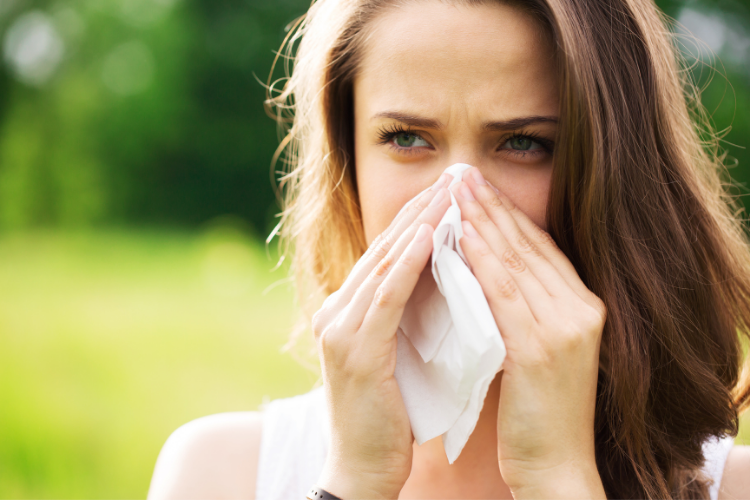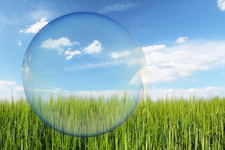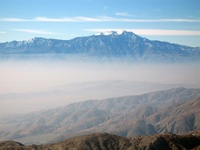Breathing clean air is beneficial for everyone, but for the 50 million Americans who suffer from allergies, it is even more essential. Though most large trees release pollen in May, many allergy sufferers will not find relief until late September as grasses, ragweed, and other common allergy-provoking plants release their pollen.
Quick Allergy Facts
More than 150 million Europeans suffer from chronic allergy problems.
Allergies are the sixth leading cause of chronic illness in the United States.
Pollen can travel long distances. Pine pollen, which is a common culprit behind allergy symptoms, has been observed traveling 300 to 600 miles.
Allergy symptoms decline with age. As you age, your immune system produces less immunoglobulin E, the antibody responsible for allergy reactions. As a result, allergy symptoms become less severe over time.
Stress can make allergy symptoms worse. Increased stress leads to higher levels of histamine in your blood, which contributes to allergy symptoms. According to doctors from Harvard Medical School, stress can also increase your subjective perception of how troublesome you find allergy symptoms, such as coughing or itchy eyes.
Why Are My Allergies Getting Worse?
Despite common knowledge that our immune systems are less sensitive to allergens as we age, you may be experiencing a worsening of allergy symptoms with each passing season. If you have noticed your allergies worsening over the years, you are not alone, and according to new data, this change is very real. A study examining pollen counts from 60 locations across North America showed that between 1990 and 2018, pollen seasons from allergy-causing plants such as trees, weeds, and grasses have increased by 20 days, and pollen concentrations have increased by 21%.
How Does Climate Change Make Allergy Season Worse?
According to experts, the cause of longer, more intense allergy seasons is climate change. The American College of Allergy, Asthma, and Immunology (ACAAI), cites three main ways climate change affects allergy season.
Warmer temperatures meanthat the growing season of plants starts earlier in the year and ends later in the year than previously. This means that the length of time during which plants release pollen into the air is longer.
In addition to a longer season, each plant also produces more pollen.
The pollen released is also more allergenic, meaning that the bodies of allergy sufferers react to it more severely, leading to increased symptoms such as itchy eyes, a runny nose, and respiratory difficulties.
How To Prevent Spring Allergies From Worsening
There are several steps you can take to lessen your allergy suffering by limiting your exposure to pollen.
Know which pollen you are sensitive to, and keep an eye on pollen counts in your area so that you can minimize outdoor time. In general, grasses and trees that pollinate in spring and summer release more pollen in the evenings, while in late summer and early autumn, plants such as ragweed release more pollen in the mornings. Pollen.com provides an interactive map that can help you keep track of pollen count and forecast in your area.
Wear a hat and sunglasses when you go outdoors, as this will prevent pollen from getting into your eyes and hair. According to the American College of Allergy, Asthma, and Immunology (ACAAI), wearing the kind of mask you would use to protect yourself against COVID-19 will also provide a barrier against pollen.
If possible, change clothes, take a shower, and wash your hair after extended time exercising, working, or playing outdoors.
Keep your windows closed during pollen season, and use your air conditioning as much as possible.
Consider air filtration solutions to clean pollen and other harmful airborne contaminants from the air. Options such as Camfil’s City-M in-room air purifier remove harmful particles and contaminants from the air to make the indoor environment healthy, protected, and clean for good well-being. Be sure to consult your local air filtration expert to learn which air filtration solutions are best for you.
About Camfil Clean Air Solutions
For more than half a century, Camfil has been helping people breathe cleaner air. As a leading manufacturer of premium clean air solutions, we provide commercial and industrial systems for air filtration and air pollution control that improve worker and equipment productivity, minimize energy use, and benefit human health and the environment. We firmly believe that the best solutions for our customers are the best solutions for our planet, too. That’s why every step of the way – from design to delivery and across the product life cycle – we consider the impact of what we do on people and on the world around us. Through a fresh approach to problem-solving, innovative design, precise process control, and a strong customer focus we aim to conserve more, use less and find better ways – so we can all breathe easier.
The Camfil Group is headquartered in Stockholm, Sweden, and has 33 manufacturing sites, six R&D centers, local sales offices in 30 countries, and about 4,800 employees and growing. We proudly serve and support customers in a wide variety of industries and in communities across the world. To discover how Camfil USA can help you to protect people, processes and the environment, visit us at www.camfil.us/
##
Media Contact:
Lynne Laake
Camfil USA Air Filters
T: 888.599.6620
F: Friend Camfil USA on Facebook
T: Follow Camfil USA on Twitter
Y: Watch Camfil Videos on YouTube
L: Follow our LinkedIn Page







